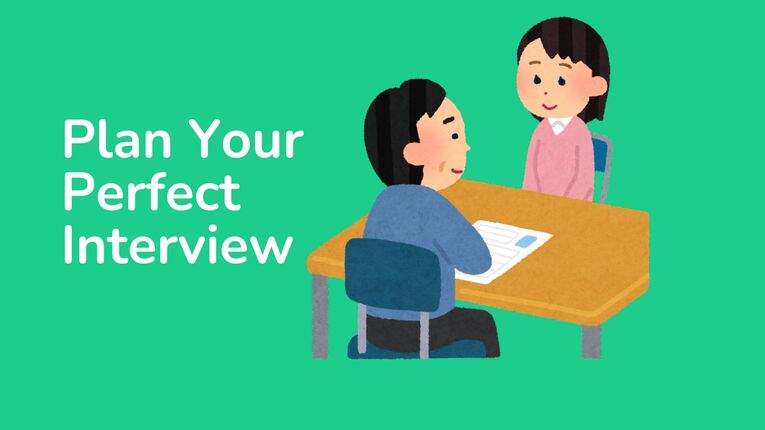Plan Your Perfect Interview-Expected Durations

From Screening to Final Round: Your Essential Interview Timeline
Walking into an interview can feel like entering uncharted territory. Unfamiliar faces, a room full of expectations, and the pressure to perform at your best – it's no wonder nerves can take hold. While you can't control every aspect of the interview, knowing what to expect regarding duration can be a powerful tool. This guide explores the typical timeframes for different interview stages, helping you plan and optimize your interview experience.
The Interview Landscape: A Breakdown by Stage
The interview process typically unfolds in a series of stages, each with its own purpose and expected duration. Understanding these stages allows you to tailor your preparation and ensure you leave a lasting impression.
1. The Initial Screening (15-30 Minutes)
This is often a phone call or short video interview conducted by a recruiter or HR representative. It's a chance for them to assess your basic qualifications and confirm your interest in the position. Here's what to expect:
Duration: Expect a quick conversation, usually between 15-30 minutes.
Focus: The interviewer will be verifying your resume information, gauging your enthusiasm for the role, and potentially asking basic behavioral questions.
Your Role: Be prepared to succinctly articulate your skills and experience. Highlight your key achievements and demonstrate a genuine interest in the company and position.
2. The Phone Interview (30-45 Minutes)
This stage often involves a more in-depth conversation with a hiring manager or a team member you might be working with. Here's what you can expect:
Duration: Plan for a conversation lasting 30-45 minutes.
Focus: The focus here shifts to your specific skillset and how it aligns with the role's requirements. Expect scenario-based questions and inquiries about your problem-solving capabilities.
Your Role: Research the company and the specific role in detail. Prepare examples of your work that demonstrate your relevant skills.
3. The In-Person Interview (45 Minutes to 2 Hours)
This is where the interview process gets more involved. Depending on the company and the seniority of the position, you might encounter a series of interviews with different teams and individuals.
Duration: In-person interviews can vary significantly, ranging from 45 minutes to a full 2 hours.
Focus: Expect a mix of behavioral, technical, and situational questions. You may also be presented with a case study or participate in a group interview setting.
Your Role: Practice your answers to common interview questions beforehand. Research the company culture and dress appropriately. Be prepared to ask insightful questions about the role and the team you'd be joining.
4. The Second or Final Round Interview (1-2 Hours)
For senior positions or those requiring specialized skills, there might be a second round or a final round interview. This could involve meeting with senior management or a panel of interviewers.
Duration: Expect the final round to be similar to the in-person interview, lasting between 1-2 hours.Focus: This stage aims to delve deeper into your leadership skills, cultural fit, and strategic thinking. You may encounter more probing questions and in-depth discussions about the company's direction and goals.Your Role: Be prepared to showcase your leadership potential and demonstrate how you can contribute to the company's success in the long term.Beyond the Stages: Additional Considerations
Knowing the typical durations is helpful, but other factors can influence interview length. Here are some additional considerations:
Company Culture: Some companies are known for their fast-paced hiring processes, while others conduct more thorough and lengthy interviews. Research the company beforehand to get a sense of their interview style.
Level of Seniority: Senior positions naturally warrant more in-depth conversations, leading to longer interviews.Availability of Interviewers: Scheduling conflicts or unexpected delays can lengthen the interview process. Be patient and professional if these situations arise.Tips for Managing Your Interview Time
While you may not control the interview duration itself, you can manage your time effectively within the allotted timeframe. Here are some tips:
Prepare concise and impactful answers. Avoid rambling or going off on tangents. Stick to the point and deliver clear, well-structured responses.Ask insightful questions. Demonstrating genuine curiosity shows initiative and engagement. Have a few well-prepared questions about the role, the team, or the company's future plans.Be mindful of your body language. Maintain good posture, make eye contact, and project confidence.
Conclusion: Confidence Through Preparation
Entering an interview with a grasp of expected durations and how to manage your time puts you a step ahead. By understanding the different stages and preparing

By : ravi
By : ravi
By : ravi
By : ravi
By : ravi
By : ravi
By : ravi
By : ravi
By : ravi
By : ravi